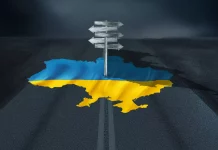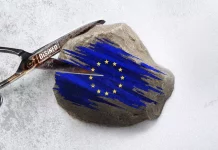
New Publications
In every Kremlin Watch Monitor, we are recommending new publications on the topic of disinformation campaigns and hostile Russian influence. We put several of the most interesting analysis in the field together into the Kremlin Watch Reader. You can use it as a helpful tool to get a broader overview about the topic or to recall some of the best studies of 2016, though of course, it is not exhaustive.
Weekly update on Kremlin disinformation efforts
The EEAS East StratCom team published a commentary summarizing their knowledge of Russian influence in Europe. Among other things, they focus on the successfulness of the pro-Kremlin disinformation campaign, with a fitting comparison: “Just as the purpose of a campaign run by a car brand is not to make the consumer like their advertisement in this or that magazine, but to buy the car, similarly the purpose of a disinformation campaign is not to make consumers like the outlets but to buy the disinformation message as credible information. And many of us are buying.”
New initiatives in the field of fact-checking
The widely used web browser Google Chrome came up with a new extension called First Draft NewsCheck, helping you with authentication of images and videos and enabling you to share your findings with other users. Meanwhile, BBC introduced its plans to establish a Reality Check team, which is going to debunk fake stories shared on social networks. According to the BBC news chief James Harding, the goal of the project is also to make the “facts more fascinating and grabby than the falsehoods”. A Latvian TV channel TV3 has also taken action recently, uncovering disinformation every Sunday evening in a show called “Theory of Lies”. The first aired episode focused on the downing of the Malaysian airplane.
The Czech State Secretary for European Affairs Tomáš Prouza published a commentary in his blog, in which he focuses on disinformation operations in the Czech Republic. He defends the establishment of the new Center Against Hybrid Threats and Terrorism. Among other things, he states, “we have to protect our democratic principles against disinformation which play with reality and twist it at will. Let’s learn to distinguish the situations when our society is attacked by systematic disinformation operations and point at them.”
New disinformation and the efforts to prevent them
In the beginning of January, the Donbas News International Agency, an official outlet of the unrecognized Donetsk People’s Republic, published a fake story saying that the United States is sending 3, 600 tanks to Europe. The actual number of NATO tanks is 87, the rest being other types of vehicles or even trailers. The disinformation was framed as an unbelievable arming action against Russia and spread through fringe websites, social media and even Russian mainstream outlets. Ben Nimmo mapped the evolution of the fake story for the DFRLab.
In the meantime, the StopFake organization has launched a monthly newspaper called “Your Right to Know” targeting the residents of the eastern Donbas region. The publication is supported by the British Embassy in Ukraine. Its aims are informative, but also educational. We wish them good luck with this great initiative and hope that in time, it might prevent incident like the one mentioned above.
Infographic of the Week
Anthony Faiola focused in his article for The Washington Post on the Czech fight with disinformation. Based on the information from one of our studies about the Kremlin’s disinformation campaign, they published an infographic mapping the Russian influence:

Euroatlantic experts on disinformation warfare
In an interview with Marta Dyczok from Hromadske Radio, the founder of StopFake.org Yevhen Fedchenko describes how the disinformation campaign started in Ukraine and how the United States can learn from it. You can either listen to the interview or read it here.
Edward Lucas focuses on the Baltic States, their security situation, relations with Western Europe and their activities in the field of defense against information warfare, in an interview published in the Deep Baltic. He also comments on the relations between Russia and the West and their chances for the future.
Katherine Schulten and Amanda Christy Brown suggest a guide for teachers who wish to present the issue of fake news and disinformation to their students in The New York Times, with a summary of different publications and exercises they can use.
Kremlin Watch Reading Suggestion
Populism in Europe and Its Russian Love Affair; by Dalibor Rohac, Edit Zgut and Lóránt Györi, published by the American Enterprise Institute
The rise of left and right populism in Europe is an obvious phenomenon in recent months. No matter on which edge of the political spectrum they stand, populists tend to share not only the criticism of political elites, but also leaning towards authoritarianism. In countries where populists managed to get significant influence like Poland or Hungary, we can observe their efforts to push the boundaries of democratic governance.
Another characteristic which far-right and far-left movements and parties have in common is that their interests are close to the ones of the Russian federation. The undermining of Western institutions, supporting nationalism and promoting protectionism in Europe suits the Kremlin because it can influence individual countries way more easily than a united Europe. Also, populism provides space for pro-Kremlin propaganda and disinformation campaigns.
The links between the Kremlin and the populists can be financial, like in the case of the most influential right-wing pro-Russian party – the French National Front, which received several loans from the First Czech-Russian Bank, but also political, as we have seen in the case of Austria’s FPÖ, which signed an agreement of cooperation with the United Russia party in December. Ideological and political consonance with Vladimir Putin can be also seen on the far-left side. For example, Czech Communists consistently defend Russia’s political and military actions and Germany’s the Left and other leftist populists from Poland and Greece became observers to the “referendum” on Crimean independence, together with parties like FN or Jobbik. The European Parliament is not spared either. The ENF group led by Marine Le Pen voted in line with the positions of the Kremlin 91 % of the time and the far-left GUE-NGL and the anti-EU EFDD stand close behind.
Meanwhile, mainstream politicians are trying to deal with the situation, often by accepting parts of populist agenda in order not to lose voters or get them back. But such a call might soon backfire. More useful solution would be the less popular one – to launch structural reforms and liberalize trade in order to restore economic dynamism, growth and job creation.
Czech Disinformation Corner
Donald Trump
Not surprisingly, the biggest topic present in mainstream and disinformation media alike during the last two weeks was Donald Trump. The pro-Kremlin websites claimed that the CIA plans the assassination of Donald Trump on the eve of his inauguration on January 20th. One of them (Parlamentní listy) concluded that if Trump wants to survive his presidency, he must break the CIA.
According to Paul Craig Roberts, the anti-Trump protesters were paid employees of the Demand Protest organization. This conspiracy was first published by Global Research and Sputnik which shared alleged ads offering full time job for operatives. Parlamentní listy asserted that it was George Soros who funded anti-Trump protests, but went further with claiming that the United States stand on the brink of civil war.
Middle East and Migration
One of the most frequent disinformation in the previous week was a decision of a court in Germany, provided, for example, by the website Parlamentní listy, which decided that an attack of Muslims in a synagogue in 2014 was a legal form of protest and thus made antisemitism legal as well. There was also a video from a German TV production, allegedly showing the crimes committed by migrants in Berlin, provided by svetkolemnas.info.
In the middle East, the State of Israel is a target of jihad and of the Palestinians and whole Europe must support it, not encourage anti-Semitism in Europe.
Kremlin Watch is a strategic program of the European Values think-tank, which aims to unravel and confront instruments of Russian hybrid war which is focused against liberal-democratic system. Find out more at www.europeanvalues.net/kremlin






